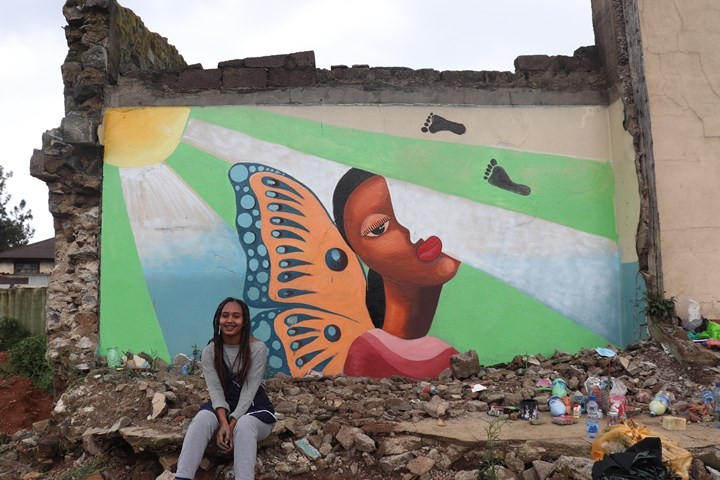
Photo: Tibeb Be Adebabay
MEPs discuss international cultural relations in joint CULT-AFET public hearing
On 14 October 2021 the European Parliament’s committees on Culture & Education and Foreign Affairs hosted a joint public hearing on culture in the EU's external relations.

Photo: Tibeb Be Adebabay
The public hearing was organised jointly by the Committee on Foreign Affairs and the Committee on Culture and Education. It was the first time a joint hearing was organised to discuss the implementation of the EU strategic approach to cultural relations.
Together with four invited experts – Oliver Rentschler, European External Action Service, Gitte Zschoch from ifa, representing EUNIC, Ernesto Ottone, UNESCO, and Carla Figueira, Goldsmiths, University of London – members of both committees discussed the implementation of the Joint Communication "Towards an EU strategy for international cultural relations" and suggested possible avenues for further future developments in the cultural relations field.
Several achievements of the implementation of the strategic approach were highlighted by the experts, such as the partnership between EUNIC and the EU, the currently implemented Preparatory Action European Spaces of Culture, cooperation with UNESCO, and the prominent position cultural heritage took in recent peace and stability missions to, e.g., Iraq.
Nonetheless, several MEPs inquired about the current implementation of the strategic approach. Salima Yenbou (Greens) and Predrag Matić (S&D) expressed that, in practice, only a limited number of activities are being implemented under the New European Agenda for Culture and the Neighbourhood, Development, and International Cooperation Instrument – Global Europe, and in addition, these are not widely visible.
In addition, some MEPs (Sabine Verheyen (EPP), Nacho Sánchez Amor (S&D) and Dace Melbārde (ECR)) called to shift from national efforts to a true European effort and to be more specific with one main area or initiative to be beneficial for such collaboration, including collaboration with UNESCO. MEPs furthermore mentioned the importance of intercultural dialogue in Western Balkans, which has been increasingly threatened by nationalist tendencies (Romeo Franz, Greens) and with countries such as China and USA (Salima Yenbou), where culture is currently being utilised for propagandic or economic purposes respectively.
The cultural diplomacy approach is difficult to reconcile with the practice of cultural relations, which is focused more on caring, sharing and listening rather than on projecting.
Carla Figueira, Goldsmiths, University of London
The experts underlined this and called for more strategic action at EU level. Oliver Rentschler expressed the aim to have cultural focal points in all EU Delegations and to include culture in all missions in the future, as well as in the EEAS’ foresight strategy. Gitte Zschoch called on this momentum to develop mechanism to continue expanding the understanding of the role of culture in sustainable development and in working in fragile contexts, for instance through initiating new Preparatory Actions on these topics. Two recent EUNIC studies on these topics underline this call: find the study Key approaches to cultural relations in fragile contexts and The cultural dimension of sustainable development on the EUNIC website. In addition, she enouraged the CULT and AFET committees to continue the dialogue and host these joint hearings on a regular basis.
Carla Figueira called for a revision of the Joint Communication given the new global context, with specially climate action needing immediate attention. She underlined that five years on, the continued prevalence of the paradigms and discourse of cultural diplomacy and soft power undermine the relations process and outcomes of cultural relations and contributes to a misunderstanding of what was actually being proposed in the 2016 Joint Communication: "The cultural diplomacy approach is difficult to reconcile with the practice of cultural relations, which is focused more on caring, sharing and listening rather than on projecting". Assessment of progress of the delivery of the strategic approach is furthermore hampered by a lack of overview of activities and their impact. More targeted measuring and dissemination is therefore needed, she stated.
Ernesto Ottone called the hearing timely to take stock of the progress made in the delivery of the 2016 Joint Communication, and pointed out the importance of and need for stronger synergies between the fields of culture and education, as well as the importance of protection of cultural heritage, including in conflict prevention, reconciliation, specifying the role cities can play in this regards.
Sabine Verheyen, Chair of the CULT committee, closed the meeting stating that the European Parliament can play a larger role in cultural relations and by extension creating better understanding between Europe and other parts of the world and that the CULT and AFET committees aim to continue to work together towards having culture integrated in the EU’s foreign policy instruments.
